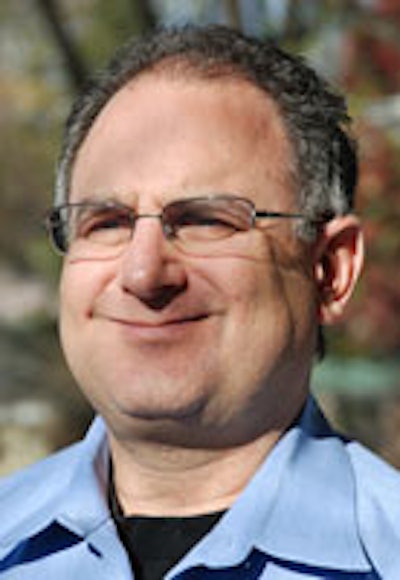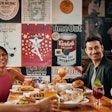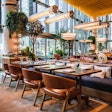
Lloyd Yanis became the director of the FamilyFarmed Expo in 2005, and has spent the past three years building it up from a small, local trade show in a college cafeteria. Billed as a "celebration of local food and goods," the expo aims to forge a connection between farmers, food artisans, and consumers with cooking demos, business-to-business workshops, and an indoor farmers market.
This year's event takes over Chicago's downtown Cultural Center this Friday through Sunday, and Yanis expects some 5,000 attendees. On the eve of his biggest outing yet, we spoke to him about the recent upsurge of interest in local foods, how the expo has changed to accommodate more guests, and the process of finding like-minded sponsors.
How have the challenges of planning the expo changed?
When the expo first started, we certainly had—as we do now—an educational component and an exhibit component. But we have a completely different, much broader audience now. We have 5,000 people attending the expo this year. In the beginning, we weren't dealing with thousands of people and the logistics of ticketing or parking. So really, it's the same thing on on a bigger scale.
How do you explain the upsurge in attendance?
An awful lot of the people that you would call "industry" today weren't involved with the [farming] industry yesterday. People are hearing a lot lately about green jobs and realizing that even though they're just consumers today, they could have a job in this field tomorrow.
How has your marketing strategy changed?
This year we're doing a lot of social marketing outreach, whether that means asking volunteers to take posters into their neighborhoods or send out emails or pass out coupons at local events. We also use social networking tools like Facebook and LinkedIn to spread our message. And we have a good market, and built-in audience, with people that write blogs.
I think our message appeals to bloggers because it's something that you have to think about and take time to explore and consider. We're not selling something like soda pop with a message like "drink a soda and smile." Our message is quite different. People who want to take the time get to know their food, and that are interested in better health for their own bodies and their communities, that audience is naturally tied to an Internet community.
Major sponsors for this year's expo include shoo-ins like the Chicago Green Festival and Conscious Choice magazine. But you also have Bank of America on board. How do you approach the two types of sponsors?
The short answer to that is we're not sophisticated enough to approach some company out of the blue and convince them that they should go green. But we are sophisticated enough to recognize companies that have made inroads with our cause. We approach organizations that have added a social mission to their mission statement and have made social outreach an important part of their marketing.
What is the role of your sponsors this year?
Some of sponsors—the ones that are involved with the [food-production] chain—exhibit at the show. We give them an opportunity to meet their buyers face to face. Our sponsors also help get the word out about our movement. Getting involved with the expo isn't just an opportunity for them to help get their name out there; it's an opportunity to help us grow our audience.
Is there a particular industry that seems to be the most resistant to sponsoring your kind of event or supporting its mission?
Interestingly, that would be institutional buyers, the people who buy food for the big kitchens at hospitals and public schools—private schools, too. It's so bottom-line oriented in those kitchens. [The buyers] would rather find a wholesale supplier that sends in frozen chicken breast than take the time to find a local farm that can supply chicken, or eggs, or whatever it is. So that's the nut we have to crack.
You hold your expo in a historic landmark in downtown Chicago. Would it be easier to take it to a major convention center?
Well, we only have 100 exhibitors. So we're not a huge event. When you have 500 booths, you can take your show to a major convention center and the booths create their own kind of look and energy. But an expo our size really benefits from being housed in a building that has such beautiful architecture and views. We feed off that charm. If we were to set up shop in a [convention center] we'd have to actually spend quite a bit on decorations to add color and appeal to some more barren aspects of the facility.



















